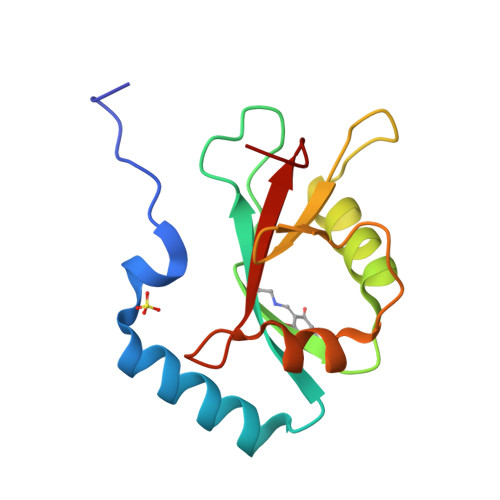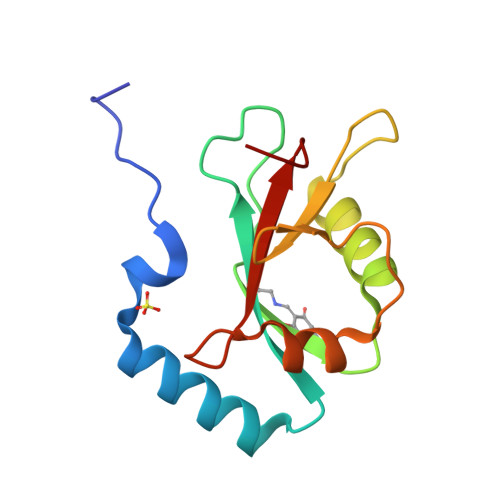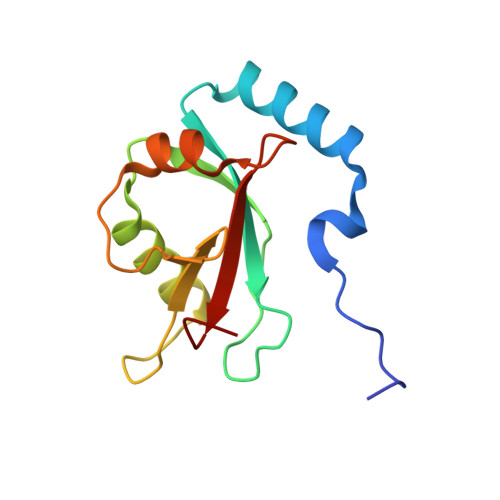Inhibition of Autophagy by a Small Molecule through Covalent Modification of the LC3 Protein.
Fan, S., Yue, L., Wan, W., Zhang, Y., Zhang, B., Otomo, C., Li, Q., Lin, T., Hu, J., Xu, P., Zhu, M., Tao, H., Chen, Z., Li, L., Ding, H., Yao, Z., Lu, J., Wen, Y., Zhang, N., Tan, M., Chen, K., Xie, Y., Otomo, T., Zhou, B., Jiang, H., Dang, Y., Luo, C.(2021) Angew Chem Int Ed Engl 60: 26105-26114
- PubMed: 34590387
- DOI: https://doi.org/10.1002/anie.202109464
- Primary Citation of Related Structures:
7ELG - PubMed Abstract:
The autophagic ubiquitin-like protein LC3 functions through interactions with LC3-interaction regions (LIRs) of other autophagy proteins, including autophagy receptors, which stands out as a promising protein-protein interaction (PPI) target for the intervention of autophagy. Post-translational modifications like acetylation of Lys49 on the LIR-interacting surface could disrupt the interaction, offering an opportunity to design covalent small molecules interfering with the interface. Through screening covalent compounds, we discovered a small molecule modulator of LC3A/B that covalently modifies LC3A/B protein at Lys49. Activity-based protein profiling (ABPP) based evaluations reveal that a derivative molecule DC-LC3in-D5 exhibits a potent covalent reactivity and selectivity to LC3A/B in HeLa cells. DC-LC3in-D5 compromises LC3B lipidation in vitro and in HeLa cells, leading to deficiency in the formation of autophagic structures and autophagic substrate degradation. DC-LC3in-D5 could serve as a powerful tool for autophagy research as well as for therapeutic interventions.
Organizational Affiliation:
The Center for Chemical Biology, Drug Discovery and Design Center, State Key Laboratory of Drug Research, Shanghai Institute of Materia Medica, Chinese Academy of Sciences, Shanghai, 201203, China.


















